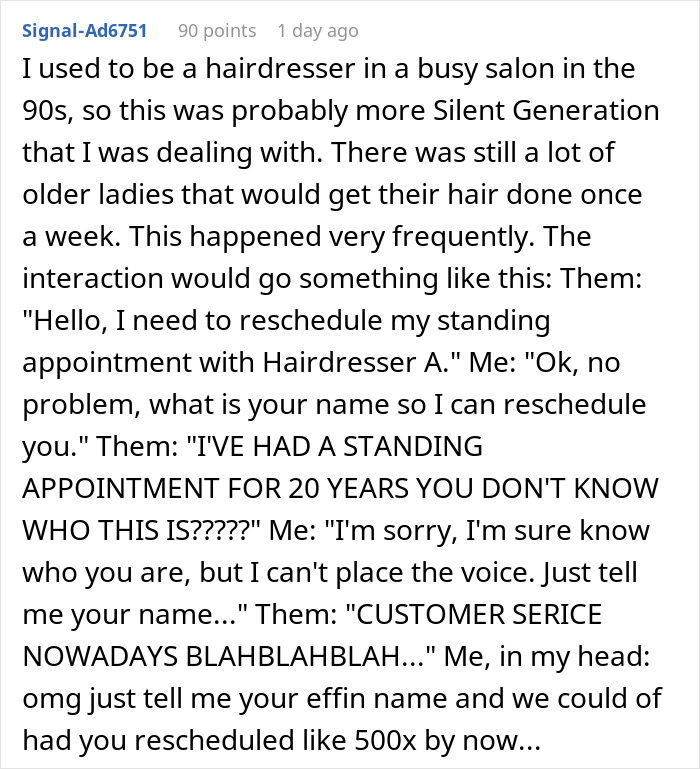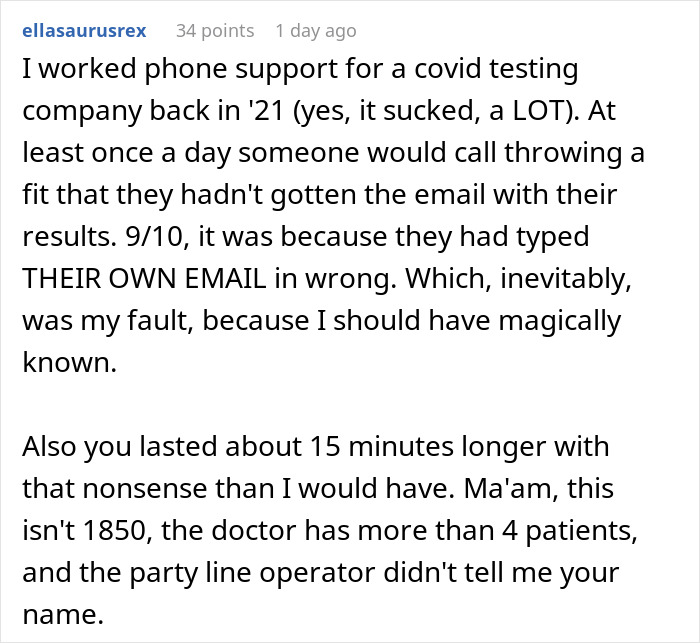We all worry about the privacy of our personal data in this day and age. However, Baby Boomers are particularly concerned about digital security, as Euromonitor found in 2022. In fact, one in ten people over the age of 55 avoid online shopping because they’re worried about companies sharing and selling their personal information. And while taking precautions is commendable, you sometimes need to disclose at least some things about yourself.
Like when you’re making an appointment at a doctor’s office. You have to give them your name – otherwise, the receptionist won’t be able to register you, right? Well, this boomer didn’t think so. She refused to give out her name and got into a 20-minute altercation with the receptionist, insisting that her information should be “in the system.” Frustrated beyond reason, the receptionist decided to share the story with people online.
Making an appointment by phone can be hard for Boomers too, not just for millennials and Gen Zers
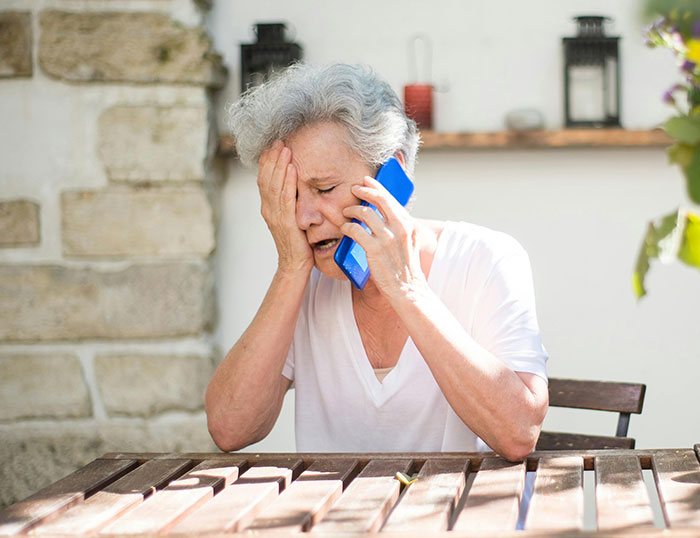
This receptionist butted heads with a boomer who refused to disclose her name because she feared for her privacy
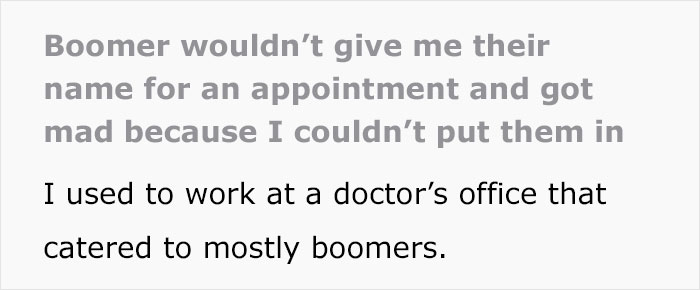

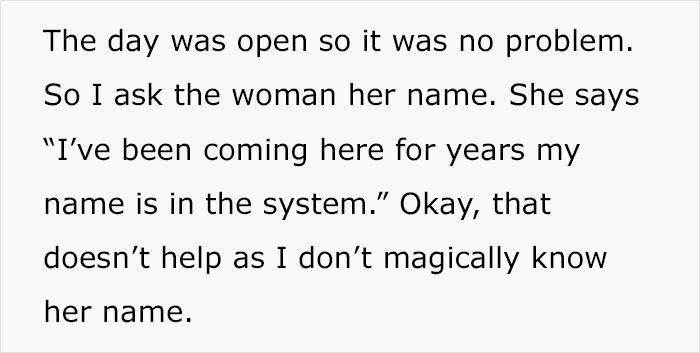
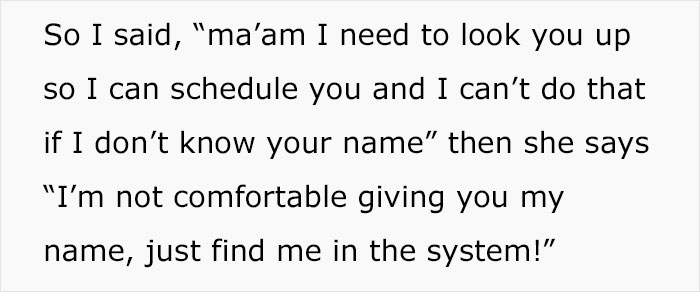
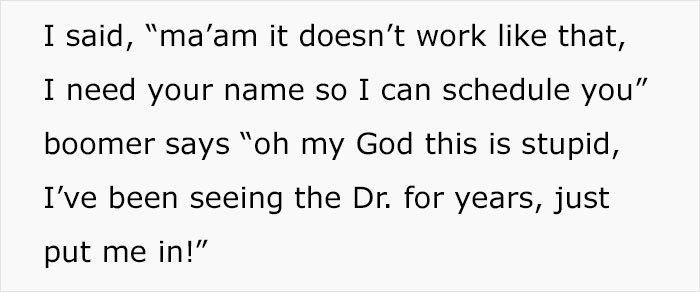

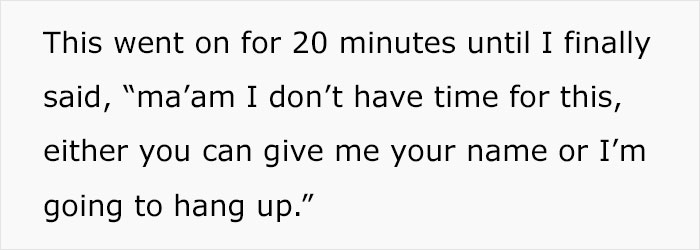



The older generation actually has better data privacy practices than young people

Image credits: Andrea Piacquadio / Pexels (not the actual photo)
Contrary to what many people from the younger generations believe, Baby Boomers are quite tech-savvy. They might not know (or be interested in) the same content that millennials and Gen Z consume online, but they do have better online privacy practices than the younger generation.
Boomers are actually less likely to reuse passwords and not save their credit card information in their online accounts. Granted, other research shows that boomers don’t always use complex passwords. When it comes to safeguarding their private information, the older generation prefers old-school methods. Instead of using Multi-Factor Authentication or a VPN, boomers opt not to shop online at all, as they tend to mistrust websites.
Perhaps it shouldn’t come as such a surprise – many boomers were at the forefront of developing computers and the Internet. Bill Gates and Steve Jobs were both born in 1955, making them members of the elite boomers club. People aged 65 and older actually spend more time on the Internet than any other age group, research shows.
However, they’re the highest percentage of people who never use social media. For them, the Internet is for keeping in touch with friends and family through other channels, such as emails. In a way, that can be safer as they don’t disclose their personal information easily. On the other hand, that makes them targets of phishing or scams more often.
But don’t fear: boomers have great radars when it comes to recognizing fraud. They’re the least likely to engage in potentially unsafe online behavior. The risky behaviors boomers shy away from include opening an email from an unknown sender, logging into more than five social media accounts, connecting to a public Wi-Fi, or saving personal information online.
We ought to have more compassion and patience for seniors

Image credits: Andrea Piacquadio / Pexels (not the actual photo)
Encounters with the elderly can tax one’s patience, as evident from this story. The Internet is ripe with stories of miscommunication between older folks and young adults. People aged 65+ make up around 17.3% of the population in the U.S., so you’re bound to run into them. The truth is that communication with a senior person might require particular skills.
When it comes to healthcare workers, knowing how to communicate with elderly people is extremely important. “Because ‘unclear communication can cause the whole medical encounter to fall apart,’ physicians should pay careful attention to this aspect of their practice,” Dr. Thomas E. Robinson, II, Ph.D., writes for the AAFPA.
He recommends that physicians and their staff employ such communication techniques as allowing older patients extra time, listening without interrupting, speaking slowly, clearly, and loudly, and giving them the chance to ask questions.
Melanie Donohue, LCSW, writes that it’s important not to be condescending toward older people. “There’s a fine line between speaking clearly and speaking like you’re talking to a child. Slower and deeper speech is easier for seniors to understand, but you don’t have to use infantile language when you communicate with seniors.”
As different generations have differing opinions on things like the privacy of personal information, arguments such as the one in this story can quickly arise. “Be careful with your tone of voice, word choices, and facial expressions,” Donohue recommends. “Even if you’re frustrated, do everything you can to stay calm and civil during the conversation.”
Lastly, diffusing the situation with humor always works. “No one is too old for humor,” Donohue writes. Instead of getting into an argument with the elderly person over something as simple as telling their name, try making a joke (not condescending!) about it.
People ridiculed the lady for making a simple registration for an appointment so hard

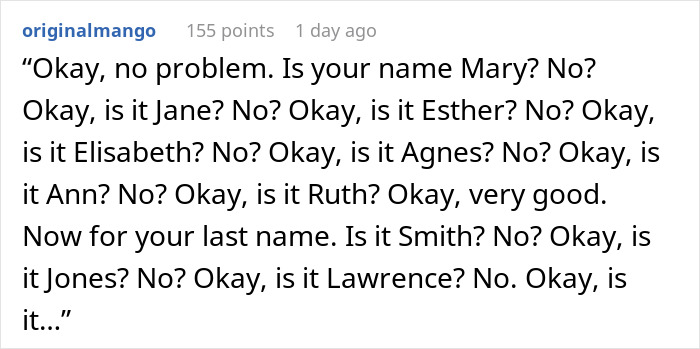

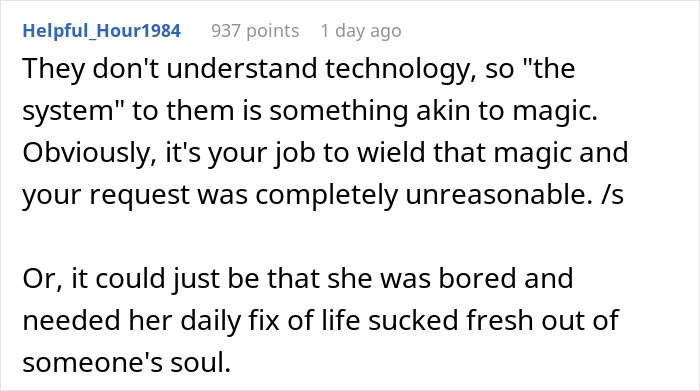







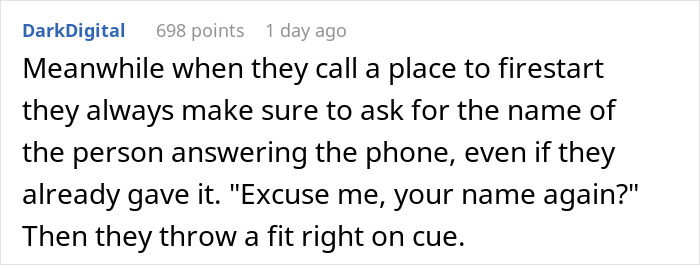

Many people shared similar stories where they had a hard time dealing with the older generation

